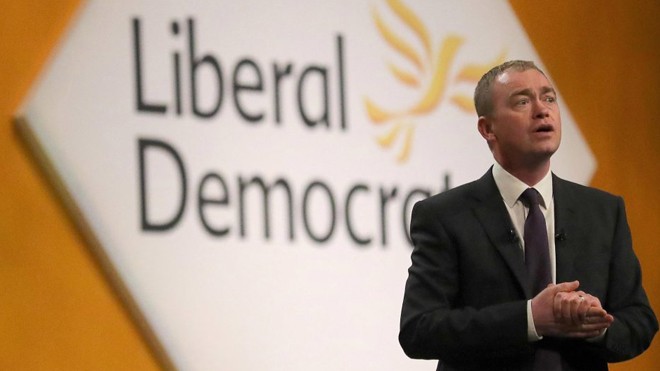

Dear All,
Less than a year after the referendum on Britain’s membership of the EU, the country is again plunged into political uncertainty.
Last year on the morning of June 25, after the referendum result was clear, it seemed as if a shocking and dramatic new chapter had been opened in British politics. The whole process of Brexit began, a process of complicated detachment and divorce from the European Commission, from treaties, legal rulings, cooperations and visa-free travel within Europe.
But now that a snap general election has been called -- less than two and a half years after the May 2015 elections, one which the Conservatives won so decisively -- a sense of political uncertainty prevails once again.
And this comes just as we were becoming resigned to the reality of Brexit.
What will happen on June 8? Will the referendum result hold? It certainly seems so.
Labour seems to have ruled out the possibility of a second referendum despite earlier being fairly non-commital about it. And now even high profile pro-remain Tories have detached themselves from Open Britain, the successor organisation to the Remain campaign.
Last week pro-EU conservatives Nick Morgan, Dominic Grieve and Anna Soubry announced they were cutting their ties with Open Britain, due to the group’s election strategy in which they identified a number of key pro-EU Tories who needed to be strategically defeated.
Which of course raises the basic question: what do the Tories actually want from this election? They had a comfortable majority -- 330 (down 1 from 2015) out of 650 seats in the parliament. So, perhaps, there really was no pressing need for Theresa May to call this election. She could just have carried on with the process of Brexit instead of pretending that her efforts were being impeded by the Labour Party.
What exactly are the Conservatives hoping will happen in this election? They accept Brexit, and Labour says it accepts Brexit, and won’t hold another referendum on the question of EU membership. So, really, the only parties now openly opposed to Brexit are the Liberal Democrats and the Scottish National Party.
It will certainly be interesting to see whether the Lib Dems are able to make a political comeback. You may recall how badly damaged they were after the 2010 general election. Following the tv debates by party leaders, the Lib Dems had actually surged ahead of the two big parties in the polls. And many, many young people voted for the party as one of the Lib Dem manifesto pledges was that they would not raise the university fees.
Well, the party did well enough (57 seats) in the 2010 election to be in the position of coalition decider -- but then instead of forming a government with Labour (with whom presumably they shared most basic social values and policies), they pledged themselves to the Conservatives and were part of a coalition government that tripled university fees (landing their young student voters in a spiral of debt and despair) and proceeded to axe many key services of the welfare state, particularly in the National Health Service.
This was something of a betrayal. The Lib Dems’ credibility was destroyed and the party did terribly in the 2015 election (winning just 8 seats). But what is happening now is that they have taken a clear position on Brexit and this may help them electorally as pro-Remain voters may perceive them as their only hope (after the snap general election was called, the party raised over £500,000 in just 48 hours and last week their membership had surged to over 100,000).
Many of Jeremy Corbyn’s supporters, who although agree with his leftist rather than centrist policies, may well abandon Labour and vote in this election as Remain rather than Labour Party voters. This is because their only way to resist Brexit may be to throw in their lot with the Lib Dems.
So is this lack of a decisive majority that both the main parties, Labour and Conservative, are secretly hoping for? Are they hoping for a poll result where nobody is in a position to sweep ahead with Brexit, and coalition politics can be blamed for delays and impediments and stalemates?
In five and a half weeks time, we should have an answer -- when Britain votes on Thursday June 8. That is when we will see if voters treat this poll as a vote on Brexit.
And, as far as Brexit goes, it is certainly ironic that after spearheading a markedly xenophobic Leave campaign, with repeated references to ‘taking back his country’, former UKIP leader Nigel Farage has moved to the US -- with his German wife!
Ah, the ironies of politics…
Best wishes